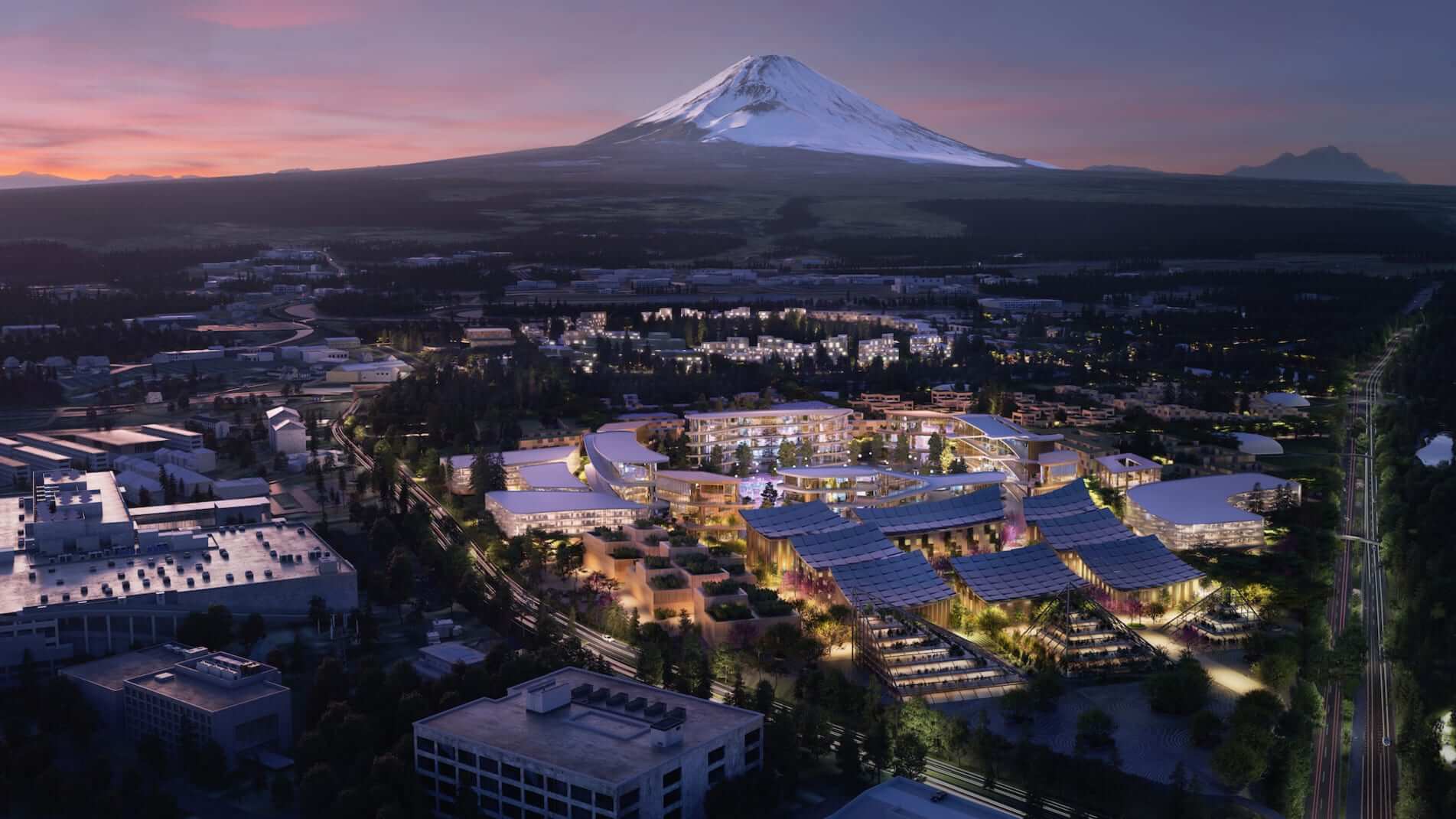Forward-looking: Hydrogen fuel cells and rooftop solar panels will be powering Toyota's "Woven City," a project announced by the company this week at CES. With construction set to begin next year, the prototype facility will serve as a "living laboratory" for testing and developing emerging technologies like autonomous vehicles and personal mobility, smart homes, robotics, and artificial intelligence.
With technology encompassing nearly every aspect of modern life, Toyota is creating an entire city that imagines the future of urbanized living with health monitoring in-home robots, autonomous delivery networks, wooden buildings, and designated routes for fast traffic, personal mobility vehicles, and pedestrians.
Powered by hydrogen fuel cells, the city will be a "fully connected ecosystem" built on a 175-acre site, previously home to a Toyota factory at the base of Mt. Fuji, 60 miles from Tokyo, Japan.
"Building a complete city from the ground up, even on a small scale like this, is a unique opportunity to develop future technologies, including a digital operating system for the city's infrastructure," said Toyota CEO Akio Toyoda.

The city's architecture is being led by Danish designer, Bjarke Ingels, whose firm has previously lent design services to high-profile projects like Google's Mountain View and London headquarters, New York's World Trade Centers, and Dubai's Mars simulation city.
Commenting on the city's masterplan on-stage at CES, Bjarke said that "homes in the Woven City will serve as test sites for new technology, such as in-home robotics to assist with daily life." Using sensor-based AI, these robots would be able to automatically take out the trash, restock fridges and even monitor the health of occupants.

Robots will also help in the construction of buildings, most of which will be made from wood and inspired by traditional Japanese architecture. Bjarke also stressed on the importance of parks and places of public interaction, noting that "In an age when technology, social media and online retail is replacing and eliminating our natural meeting places, the Woven City will explore ways to stimulate human interaction in the urban space."
The futuristic city will also have a fleet of Toyota's autonomous e-Palette vehicles performing delivery and retail duties. Toyoda remarked that the connection and communication of people, buildings, and vehicles with each other through data and sensors will enable them to "test connected AI technology... in both the virtual and the physical realms... maximizing its potential."

Toyota's Woven City will break ground next year with over a dozen structures to be constructed in the initial phase. The company's employees and their families will be among the first 2,000 residents of the city, joined later by invited "retired couples, retailers, visiting scientists, and industry partners."
Although Toyota didn't mention costs or a completion timeframe, Akio called the project his "personal field of dreams," believing that the "fully sustainable" city can benefit everyone, not just Toyota.
"You know, if you build it, they will come."
